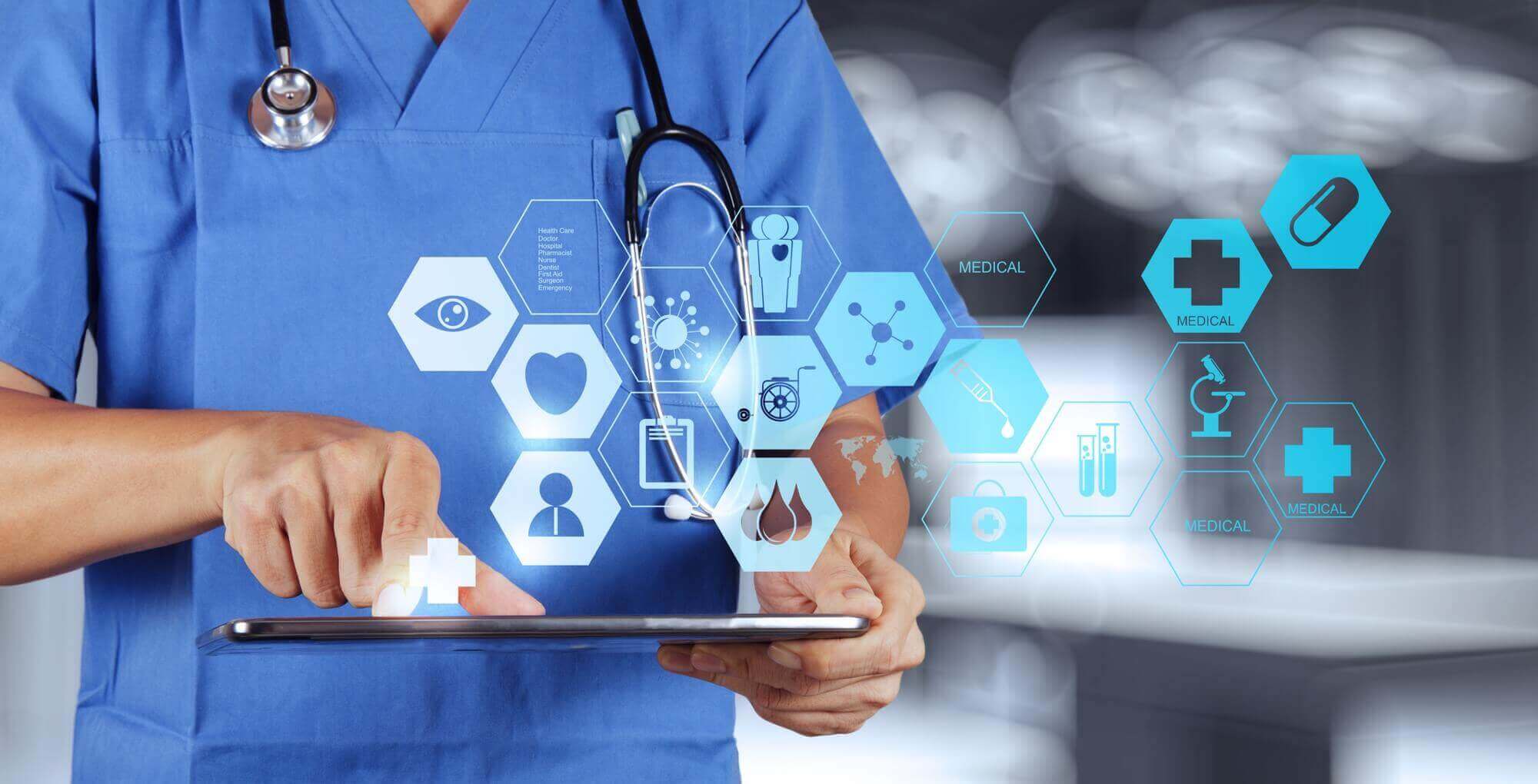What Are Technologies That Have Changed the Pharma Industry?
What Are Technologies That Have Changed the Pharma Industry?
In recent years, new technology has had a huge impact on the pharmaceutical industry. Instead of struggling to keep up with changes brought about by technology, the pharmaceutical industry has embraced the possibilities and is now setting the pace with positive advancements heralding a wave of innovation. Technology has greatly improved the delivery of healthcare services and in this article, we will take a closer look at a few of the technologies that have made this possible.
Also Read – How Does IoT Resolves Healthcare Industry Problems?
Check out what are technologies that have changed the pharma industry as below:
1. Virtual Reality (VR) –
Medical professionals have found a new and effective way to combat pain in patients that employs virtual reality. Basically, VR “distracts” the mind and takes it away from pain sensors. This is done by having the patient wear a specially-designed VR helmet. With this device, the patient can be taken to a completely different setting where their brain is experiencing triggers that respond to pleasure and redirect the electrical pulses away from pain receptors.
This can be accomplished in short sessions wearing a VR helmet. Many individuals suffering from one of many different types of chronic pain who undergo this form of treatment say their pain disappears or becomes manageable.
2. Digital Health –
Digital health encompasses several types of wearable devices or apps that provide patients with a form of treatment that is not built upon prescriptions of physical pills or medications. Wearable devices collect data that is analyzed remotely by a medical professional.
Changes to a treatment plan are then made according to the most recent data. All of this is possible without having to attend a doctor’s appointment in a clinic or office. Doctors communicate with their patients through the app and offer suggestions on how to make lifestyle changes to improve health conditions.
3. Internet of Things (IoT) –
The Internet of Things is a network connecting all medical devices and tools. This provides a better inventory of data and permits real-time sharing of it. The information can be patient files needing observation by more than one doctor, even if they are practicing medicine in different parts of the city or country. It can be data collected from multiple monitoring devices, each of which is connected to the IoT to make it easier to track the information being recorded.
An example of this would be data loggers. Dickson is an example of a company that offers IoT-enabled data loggers that, when coupled with continuous monitoring software, can provide constant monitoring of sensitive pharmaceutical products.
4. 3D Printed Drugs –
Now that 3D printers are being used to “build” items from designs loaded into the software, imagine how these devices might change the way you take medicines. A 3D printer could create a “super pill” you would take once to treat a condition rather than a series of pills administered daily for weeks or months.
3D printers can also create pills and medications in different shapes, designs, and colors. These options can be effective in encouraging children to take medications when they may otherwise be resistant. Expect 3D printing technology to further affect the healthcare industry through the creation of devices that can be implanted within the body. This can be a monitoring device or a replacement organ. We are just starting to see the potential of this technology in the industry.
5. Artificial Intelligence (AI) –
Artificial Intelligence teaches computers using data that is loaded into the software. AI can then take that information and conduct internal testing models without having to use physical means. Results are produced in a fraction of the time for clinical trials can and answers to medical conditions can be provided to your doctor faster.
With AI, treatment plans are far more accurate because they can provide the medical data needed to back the decisions being made. Essentially, what would have taken years and decades to resolve can be handled by computers with AI producing results in minutes or hours. This means that better healthcare outcomes are possible which makes the delivery of health services better and more reliable.
6. Nanotechnology –
Nanotechnology, although already used in other parts of the healthcare industry, is fairly new to pharmaceuticals. Researchers are developing tiny robots in the form of a pill for patients to ingest. When inside the body, the miniature robot would go to work treating a condition that would otherwise require hours on an operating table.
The medical field sees nanotechnology as a way to not only reduce the trauma a body experiences during traditional operating procedures, but also as a possible way to open doors to treating conditions that are difficult to remedy. In short, new cures may result from the use of nanotechnology.
7. Telehealth –
COVID-19 forced many of us to stay home and self-isolate. One beneficial side effect is that it also increased permissions for medical professionals to conduct business over the phone. Making use of phone apps, patients can have a regular appointment with their doctor without having to leave home.
This has also provided many individuals with access to medical care who may not have been able to travel to a clinic due to mobility issues or because of living in a remote region. Telehealth has also streamlined the way doctor’s offices operate by eliminating long wait times.
Conclusion –
Technology has changed the way we shop and communicate. It has also had a huge impact on the delivery of healthcare with a particular emphasis on changes to the pharmaceutical industry. As technology continues to change and update itself, expect to see a continuous evolution of pharmaceuticals and the role they play in our lives and in keeping us healthy.
Expect to see more new ways by which technology affects our health with innovative techniques, tools, and solutions. What may seem to be the stuff of science fiction novels and movies is quickly becoming a reality thanks to new technology and the willingness of the healthcare industry to use it to make improvements for all of us.
Also Read – Can Digitized Medical Records Provide An Edge To Healthcare Industry?





